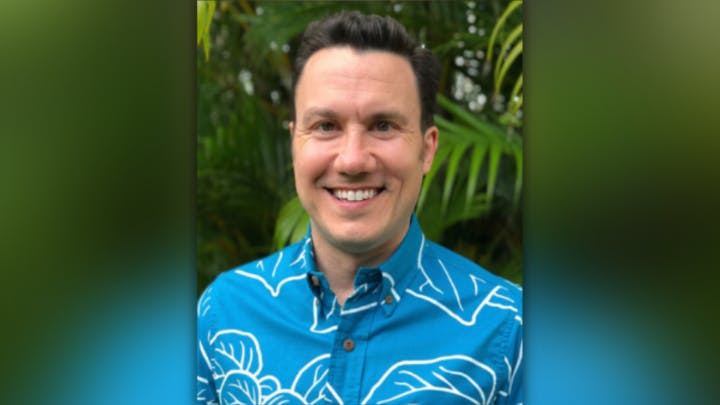Contributed by: Brandee Menino
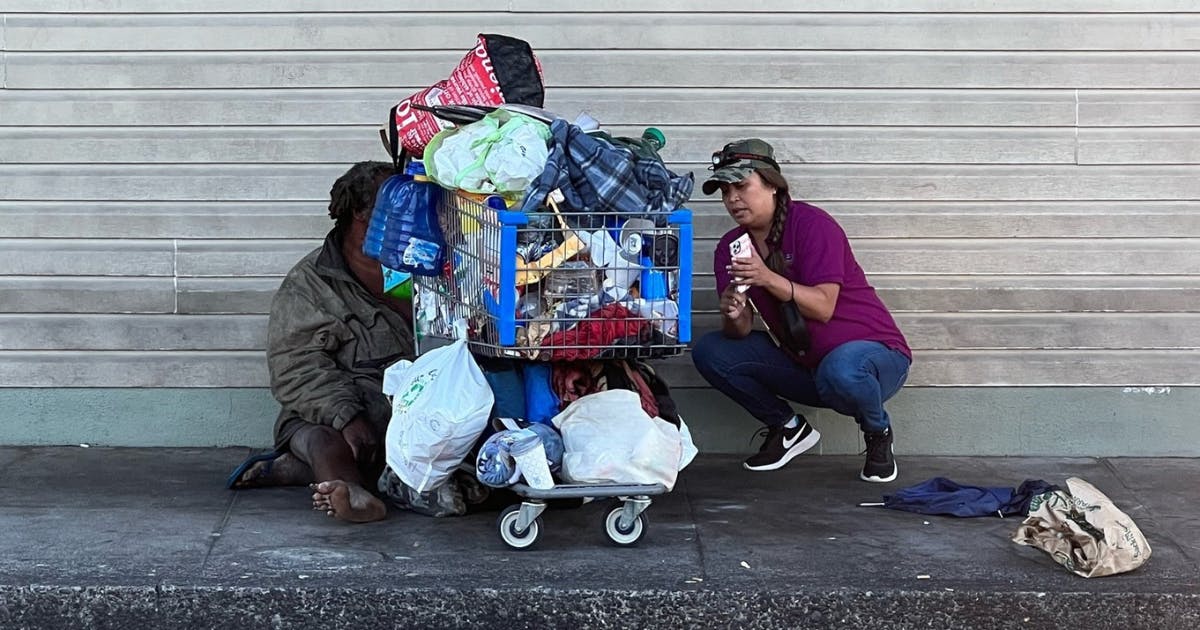
Brandee Menino consults with a person experiencing homelessness.
Photo courtesy HOPE Services Hawai‘i
In our latest issue of Taking on Tomorrow, we asked Fellows to answer questions about the ways they practice leadership in their lives and with the nonprofit organizations they lead. Here's what Brandee Menino, CEO of HOPE Services Hawai‘i, had to share:
How do you practice leadership as an activity?
When I think about how I practice leadership as an activity, I am called to reflect on the feedback I get from my team. Recent feedback helps me know that I’m activating leadership and not just carrying the CEO title. One example is from my colleague who leads our outreach engagement services. She reminded me of the importance and meaning of my willingness and availability to join our direct service staff in the field—the bushes, forests, streets, and parks. Sometimes the perception is that executives get caught up in what might be considered more “upper-level” planning and development, but the truth is that my leadership is largely activated by being able to be with the people we serve, understanding what they suffer through, finding out what gives them joy, and assessing what we can do to help. I’m grateful to be the leader of HOPE Services Hawaiʻi, but I’m humbled to know that leadership is happening across our organization, every day, literally saving lives.
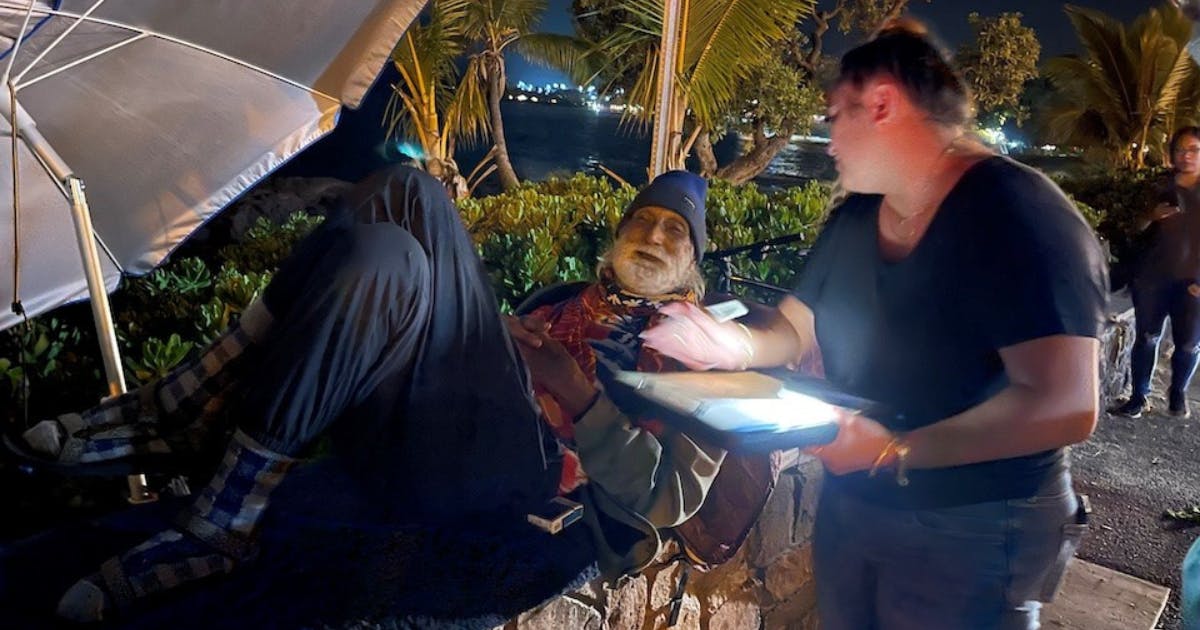
Photo courtesy HOPE Services Hawai‘i
What are important challenges HOPE Services Hawaiʻi aims to address?
Our biggest goal as an organization is to make homelessness on Hawaiʻi Island more rare, brief, and nonrecurring. We accomplish that by reducing the incidence of unsheltered homelessness; decreasing lengths of stay in emergency shelters; increasing the rate of permanent housing placement; and reducing recidivism, or returns, to homelessness. In order to meet those goals, the larger challenge is to garner public support around our houseless and housing-insecure community; to dispel myths about the population we serve; and to humanize the experience of homelessness. So often that experience is othered and marginalized—to the extent that we regularly walk past people on the streets and we judge people too resource-poor to have adequate housing. By doing so we miss the real issue, which is that affordable housing is less and less available not only in our Hawaiʻi Island community and beyond our state, but nationally—affordable housing is a crisis. The most important challenge we are confronted with is having to show up every day to shift the perception of who is ultimately the most vulnerable in our community. Despite homelessness being on the agenda of many decision-makers and people of influence, we see through political inaction that so-called solutions to end homelessness are too often distilled to more harmful actions: encampment sweeps, continued displacement of people, and few protections for affordable communities. We’ve aimed to address this by making strategic risks to create better social conditions for the people we serve.
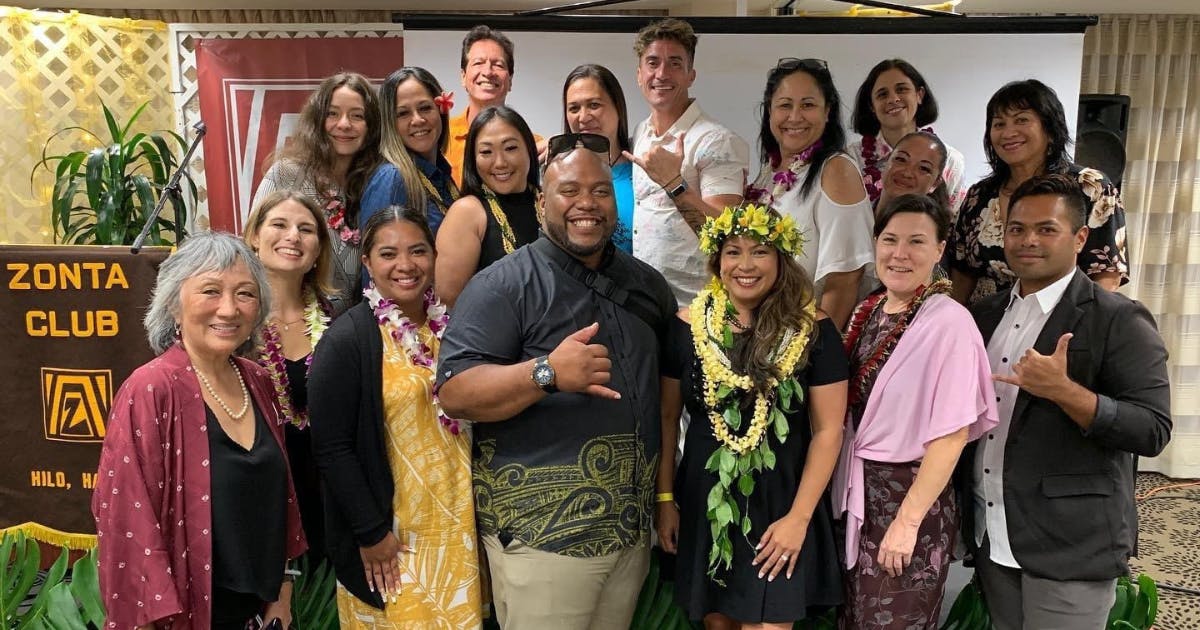
Photo courtesy HOPE Services Hawai‘i
“I’m humbled to know that leadership is happening across our organization, every day, literally saving lives.”
What are some risks HOPE Services Hawaiʻi has taken to practice leadership?
We have been called an agency “ahead of the curve.” We have that recognition from strategic risks taken since 2015, when we invited a new partner, (not “from here”), to help us operationalize a Housing First approach. This included a set of best practices that were in opposition to how social services had been carried out. The return on our investment to undertake a new way of doing things continues to unfold today. It set in motion our courage to say “yes” to many other strategic risks, as in 2018 when we said yes to a project during the lower Puna lava eruptions that was not eligible for many funding levers and required major asks of philanthropic partners willing to take risks with us. That project made the way for a long-needed affordable housing project that is near occupancy-ready. Our reputation of being willing to take risks to shepherd new initiatives and of having faith in trying new things is what opened the doors to opportunities like piloting a new State MedQuest Division program that utilizes Medicaid dollars to fund pre- and post-tenancy supports for the people we serve.
A thread that runs through the risks we’ve taken is staying in the space of fulfilling a vision where everyone has adequate housing and necessary supports. We take risks through a spirit of collaboration, not competition because we know that a big part of our work is making sure community partners’ capacities can grow too. They must grow, and we must grow together, in order to meet the needs of our community. We practice leadership in hopes to inspire and empower leadership throughout our community.
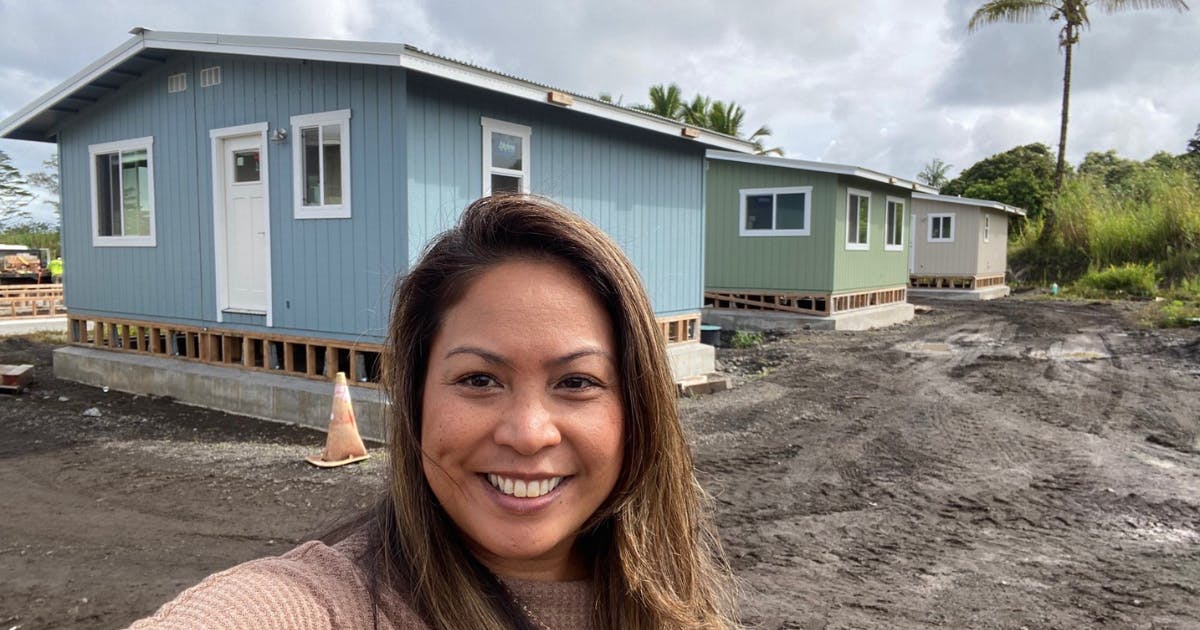
Brandee stands in front of newly built modular homes at the Sacred Heart Affordable Housing Project in Pāhoa.
Photo courtesy HOPE Services Hawai‘i
Josh Wisch, Omidyar Fellow and president and executive director of Holomua Collective, writes about how Holomua is convening people across sectors to co-lead efforts and co-create solutions that make Hawai‘i more affordable for working families.
